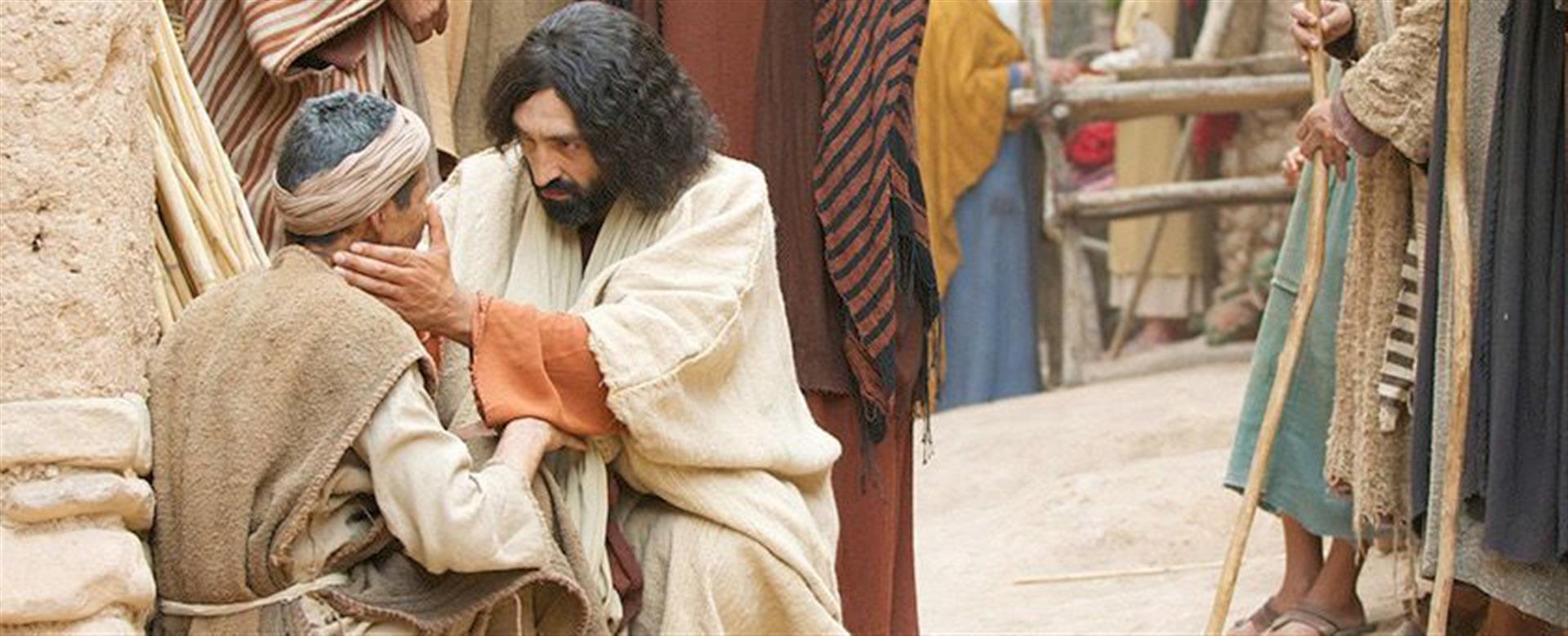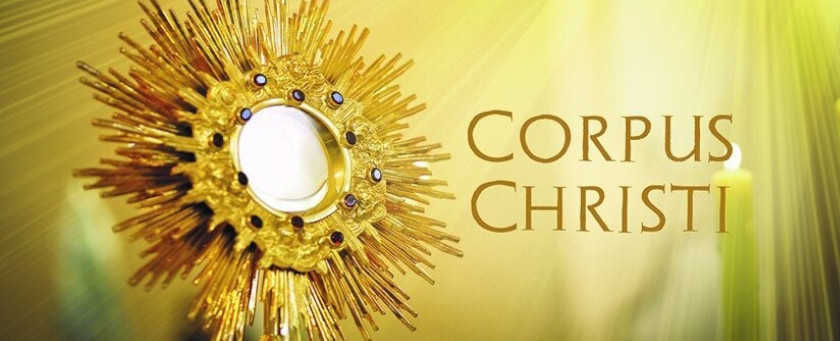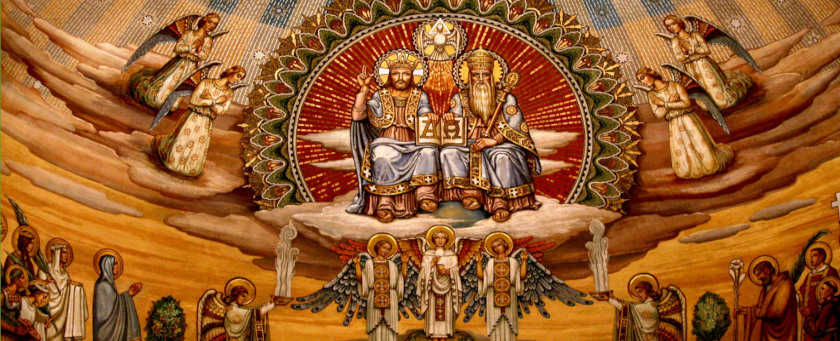How do we see Jesus?
Fourth Sunday of Lent, Year A (Laetare Sunday)

Readings:
1 Sm. 16:1b, 6-7, 10:13a; Ps. 23; Eph. 5:8-14; Jn. 9:1-41
Today, on this Fourth Sunday of Lent, Holy Mother Church celebrates Laetare Sunday. The word laetare is Latin for “rejoice,” but our rejoicing today is somewhat bitter-sweet. We just observed the first day of Spring, which often comes with a sense of hope and anticipation for warmer weather, new growth, longer days, and new possibilities. The COVID-19 pandemic, however, has blanketed the world with a shadow of fear, panic, and doubt. But, while we take this precaution and seclusion to protect our health and the health of others, we must also focus on our interior spiritual life with God.
God tells the prophet Samuel, “Not as man sees does God see, because man sees the appearance but the LORD looks into the heart.” Samuel had a deep connection with the Lord, which began at a young age, when he heard the Lord calling him in the night. It is interesting how the Lord speaks to his people in the darkness. Just a few days ago, we celebrated the Solemnity of St. Joseph, the Husband of the Blessed Virgin Mary. It was during the night that St. Joseph was visited by the angel in his dream, who encouraged him not to be afraid to take Mary, his wife, into his home. Could either of these great figures have ever fully understood what would come of their encounters with God? So, let me ask you this: In these dark times today, can we fully understand what the Lord has in store for we who believe?
St. Paul encourages us to: “Live as children of light, for light produces every kind of goodness and righteousness and truth.” But, how can we live in the light when we are so affected by the darkness that it has all but paralyzed us? St. Paul simply says, “Awake, O sleeper, and arise from the dead, and Christ will give you light.” In other words, do not let the darkness extinguish the Light of Christ within you. But, as the saying goes: Easier said than done. Or is it?
We live in a time of instant gratification. Whatever we want we can usually have immediately, whether that be online search results, streaming movies and shows, eBooks, Snap Chats, Tik-Toks, text messages. If we want to buy something, the item usually arrives within 1 or 2 days. Instant gratification. And while most of the world is on lock-down, all of these things are still at our disposal. Yet, they do not satisfy. How often have you heard someone say, “I’m bored?” Maybe some of the parents out there have heard that more than a few times already. If there’s anything that this time of isolation has shown us, it is that all the stuff we use to entertain us, really isn’t that entertaining after all. It’s good for a time, but then is forgotten. But, what about our faith? Has that been forgotten too?
Faith is the opposite of what we have grown accustomed to in a world of instant gratification. “Faith is confident assurance concerning what we hope for, and conviction about things we do not see” (Heb. 11:1). And if faith is about confidence and hope for things to come, then instant gratification is just not a part of that equation, rather, faith is a matter of perseverance, endurance, working out the mystery of God’s invitation. It is a healthy longing that can never be satisfied by the tangible nothings of the world, but rather, seeks to embrace that which cannot be seen. Easier said than done? Or could it be the lack of satisfaction we experience in the world is really our true longing for God. Perhaps faith is a bit easier than we might expect, but like anything, it takes effort to recognize.
The blind man in today’s Gospel was unable to see, in fact, he was born blind. To be born with such a disability, at that time, was thought to have been a punishment from God. Yet, it is Jesus, the Son of God, who takes the initiative to give the blind man sight. But, his sight alone was not enough for him to believe in Jesus. In fact, when he is questioned by the Pharisees, he assumes that Jesus was just some prophet. His eyes may have been opened, but his heart is slow to follow. It is not until he is expelled from the synagogue that he encounters Jesus again. That is to say, it is not until he has let go completely of his former way of life, namely, his blindness and even what he thought he believed, that Jesus revealed who he is: The Son of Man, the one who has come to cast judgment on the world.
What about us? How do we see Jesus? Is it a matter of eyesight alone? Or is it a matter of faith in the heart? Perhaps today it will be a combination of both. As we celebrate this Holy Sacrifice of the Mass, we invite you who are watching from home to adore Jesus in the Most Blessed Sacrament of the Altar. Adore him with your eyes, but embrace him with your heart, so that we, along with the blind man from today’s Gospel, may say together: “I do believe, Lord.”
Homily given at a “Virtual Mass” offered during the first week of US quarantine from the coronavirus COVID-19





Twitter
Facebook
Pinterest
Email